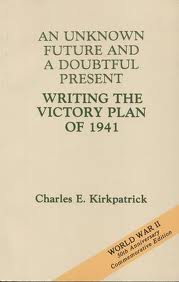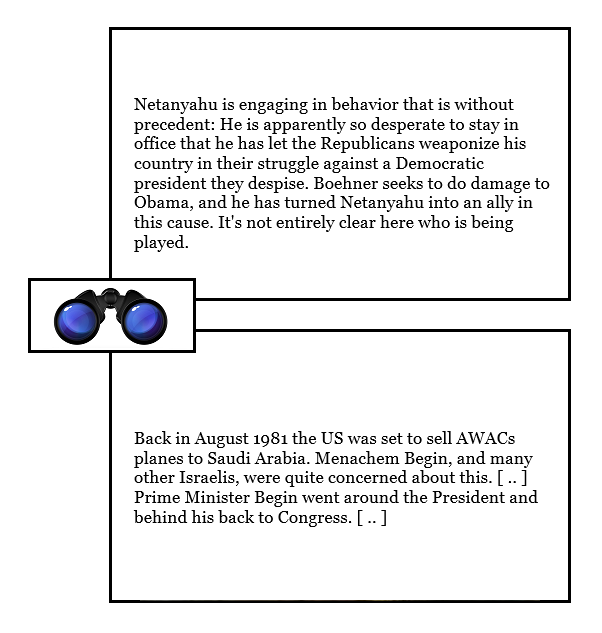[by J. Scott Shipman]

An Unknown Future and a Doubtful Present: Writing the Victory Plan of 1941, by Charles E. Kirkpatrick
Mr. Kirkpatrick’s little book provides an excellent primer to the formulation of the United States’ WWII strategy and a refreshing insight into the education of an master strategist, the focus of this post. At 138 pages (plus bibliography/index), Kirkpatrick provides an overview of the enormous contribution of Major Albert C. Wedemeyer, then attached to the War Plans Division, the Army chief of staff’s strategic planners. In the spring of 1941, General George C. Marshall wanted a “more clear-cut strategic estimate of our situation”. Wedemeyer placed his work in the context of four questions:
1. What is the national objective of the United States?
2. What military strategy will be devised to accommodate the national objective?
3. What military forces must be raised in order to execute that military strategy?
4. How will those forces be constituted, equipped, and trained?
Wedemeyer understood that number 4 was not possible without a clear understanding of 1 through 3. Number 1 did not exist (probably still does not), so Wedemeyer made his best guess. Wedemeyer placed his task in context and produced a plan in the prescribed 90 days (!).
No Ordinary Major
Wedemeyer was no ordinary major. He was a voracious reader and student of history; familiar with Clauzewitz, von der Glotz, Fuller and Sun Tzu. He was fortunate to have a mentor (who happened also to become his father-in-law), MG Stanley Embick. Embick encouraged Wedemeyer to “organize discussion groups of officers during the years on Corregidor. Professional reading served as the context for such social gatherings of Wedemeyer’s peers intelligent and articulate men who met periodically to discuss current events, the books they had been reading, and professional interests.”
Wedemeyer was an honor graduate of the Command and General Staff College, and his performance earned him the opportunity to attended the Kriegsakademie, the German staff college. However, coupled with impressive academic preparations, Kirkpatrick writes that Wedemeyer’s curiosity exposed him to a “kaleidoscope” of ideas and methods. Kirkpatrick summed-up Wedemeyer: “Competence as a planner thus emerged as much from conscientious professional study as from formal military education…” Going on to say:
In common with many of his peers, much of Wedemeyer’s professional and intellectual education was less the product of military schooling than of personal initiative and experience in the interwar Army.
Wedemeyer’s intellectual development was purposeful and paid off. In Wedemeyer’s deep study of his profession he used the prescribed paths, but also explored on his own. How common is that today? What is the real intellectual foundation supporting our professional warriors? Is it the minimum one will glean from the service schools, or we encouraging our people to go a step further. In an earlier post I wondered aloud, and echoed a remark posed by Jon Sumida with respect to Alfred Thayer Mahan:
“It remains to be seen whether readers exist with the mind and will to accept his guidance on what necessarily is an arduous intellectual and moral voyage into the realm of war and politics.” (emphasis added)
Against this backdrop, Tom Ricks in an interview at the Washington Post said:
The U.S. Army is a great institution. The rebuilding of the U.S. Army after the Vietnam War was an epic struggle and was enormously successful. Today we have great frontline soldiers. They are well equipped, they are well trained and they are in cohesive units.
The problem is at the very top. This magnificent rebuilding of the U.S. military after Vietnam really did recreate the force, but they kept the old head. The one thing they didn’t really change after Vietnam was how they shaped their generals. What we got was a generation of officers who thought tactically and not strategically. It’s the difference between being trained and being educated. You train people for known attacks. You educate people for the unknown, the complex, the ambiguous, the difficult situation. (emphasis added)
No intention of singling out the Army, I would cast the net of this question to include the other services, and ask whether we have Major Wedemeyer Majors/Lieutenant Commanders in the pipeline. If we do, are we nurturing and encouraging them? How many of our professional warriors study independently, and like Wedemeyer host/encourage frequent independent fellowship/discussions around books and ideas independent of the academy? As I mentioned in an earlier post, there is no app for intellectual development. We should at least expose our officers to the Wedemeyer method, if you will, and go deeper than service schools, blogs, and the constant chatter in our information laden world. Colleagues gathering to discuss and debate; educating and enlightening each other.
On strategy, Kirkpatrick quotes Wedemeyer:
…strategy, properly conceived, thus seemed to me to require transcendence of the narrowly military perspectives that the term traditionally implied. Strategy required systematic consideration and use of all the so-called instruments of policy–political, economic, psychological, et cetera, as well as military–in pursuing national objectives. Indeed, the nonmilitary factors deserved unequivocal priority over the military, the latter to be employed only as a last resort.
Wedemeyer’s net was wide and comprehensive and worthy of emulation. While his accomplishment(s) are impressive, so was his preparation.
Wedemeyer went on to a successful Army career, retiring as a 4-star. In 1985, he was presented the Presidential Medal of Freedom by President Reagan. (See the New York Times obituary.)
This is an important and accessible introduction to the nuts-and-bolts of strategic planning and has my strongest recommendation.
A free electronic copy can be found here (pdf).





